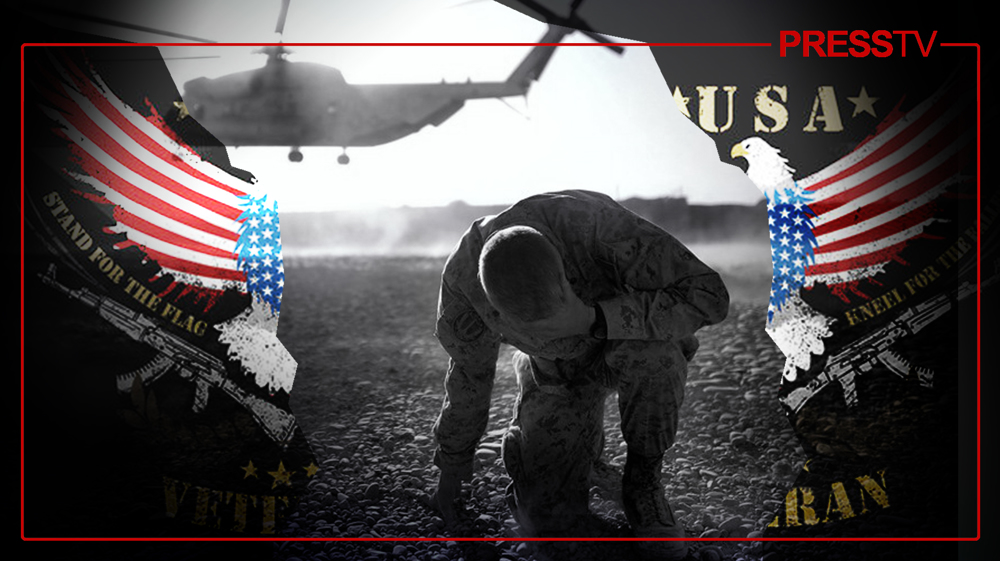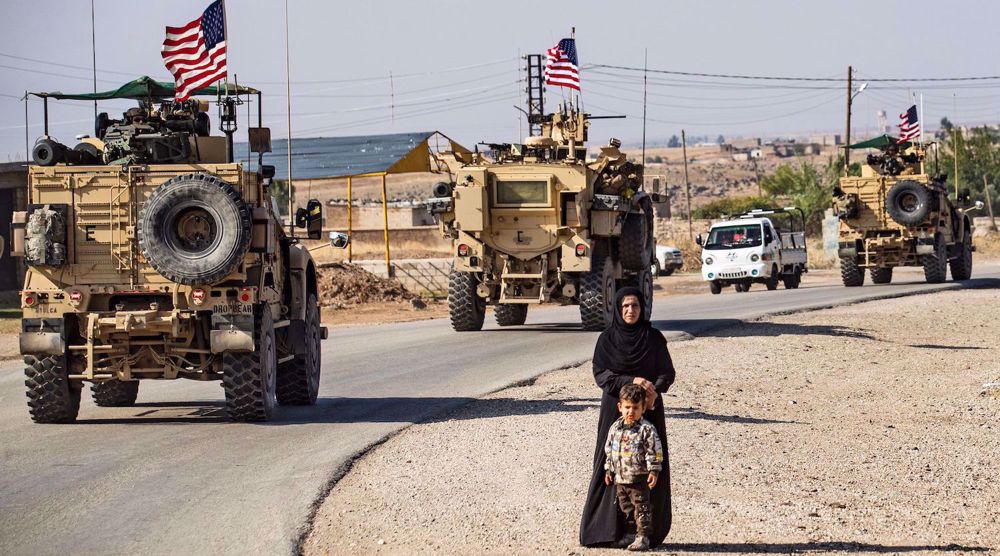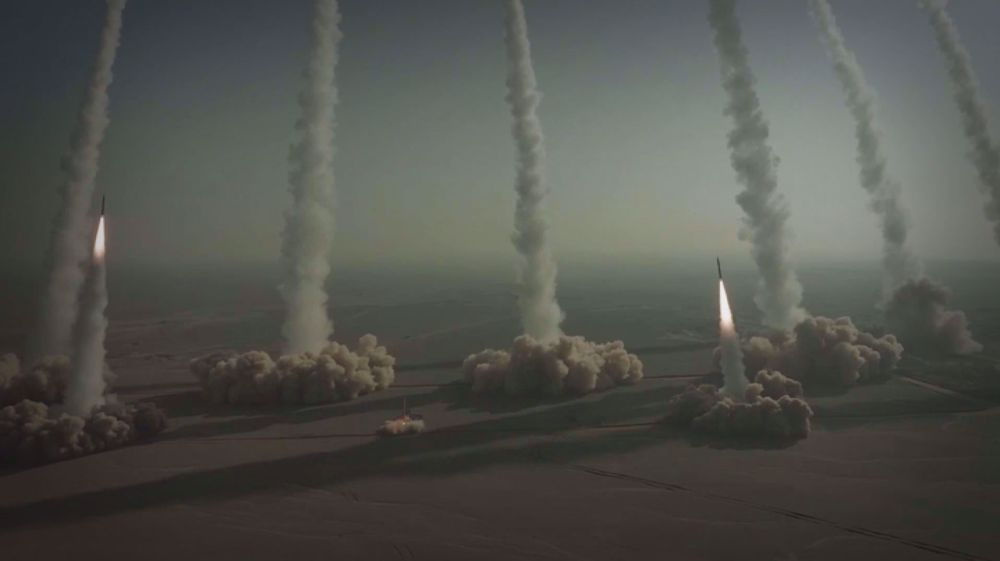Debunking the myth of US military supremacy, once again – Part I
By Ramin Mazaheri
The past decade has rendered American boasts of global military supremacy so false and obsolete that it increasingly reveals their amateurism, jingoism, or both.
Running out of basic ammunition to the point that they have resorted to using cluster bombs deemed illegal by the world, a long-awaited counter-offensive by Ukraine which is an abject failure, crossing and re-crossing military technology red lines only to see their hardware underperform, the loss of 20 percent of Ukraine’s territory despite billions of Western training and supplying for years beforehand.
What Ukraine is reminding us, and for the third time in the past 15 years, is that Russia is not the West’s military peer but their superior.
Easily defeating the US-trained and equipped force in Georgia in 5 days in 2008, their successful defense of Syria, and now their domination of a Ukraine backed to the hilt by NATO undoubtedly reveals their superiority to anyone who judges by effectiveness on the ground instead of dollars spent or boasts made.
It’s a good time to revisit the 2018 book Losing Military Supremacy: The Myopia of American Strategic Military Planning by Russian military analyst Andrei Martyanov.
The book immediately grasped that year’s firm establishment of Russian supremacy in military technology, and five years later, it remains an important read for both its accurate assessment of the impact of next-generation Russian weapons and for dissecting the gross doctrinal/ideological/cultural errors that explain how the US wound up on this losing technological path.
If the US no longer has military dominance over major powers who are not its allies - Russia, Iran and China - then how can it claim to still have military supremacy?
The US obviously does not, and those three nations have been able to establish military dominance in their own sphere of operations primarily because of a moral/ideological/political reason: they reject imperialist and expeditionary/for-profit wars – insisting only on their right to sovereignty, self-defense and peace - and thus their strategic military planning does not suffer from short-sightedness.
Of course, Western arms dealers and politicians desire to ignore the military-technological revolution Russia has unveiled in less than a decade, but Martyanov points out three fundamental, gigantic flaws in Western assessments of Russian military capacity which are so simple anyone can understand and agree with them:
The first flaw is foolishly forgetting that World War II decisively proved that the popular revolution of 1917 raised Russian development to a level of not just equality but on-the-ground superiority in the fields of military development and military technology.
A second flaw is, barring a very short era after 1991, forgetting that Russia has continued this intense focus on creating world-class military machines up to our present day.
It’s as if the West forgot Sputnik, and that they also think that Russians simply gave up hyper-advanced military research. Worse, they think making a fun smartphone app is as technologically difficult as making an unrivaled weapon.
Third, it’s forgetting that Russia has almost perhaps the world’s greatest store of experience in defensive war since 1789 and that Russian weapons are not designed for sale but for the actual defense of the homeland, precisely because West Europeans have made that so repeatedly necessary for them.
That last point requires more discussion because it also explains the poor battlefield results of US weapons.
Of course, the United States keeps saying its military is the best: designed for foreign sales, and not for actual defense of their own homeland, so buyer beware. When they boast of their unrivaled military, despite nothing but their own losses for 70 years, what they are really insisting is: “Advertising works!”
The advertising spin began during the first cable-news war - Gulf War I - when images of precision-guided missiles going down chimneys were replayed over and over, to the glee of US weapons manufacturers, proponents of American exceptionalism and believers that war is like a video game.
However, 90% of the US bombs used in that war were “dumb” munitions. The truth is that the US used a huge amount of old technology to overwhelm a demoralized, poorly equipped, military non-peer, and this remains the only place where the US military thrives today: against second- and third-rate armies with the little political will to fight and certainly zero revolutionary spirit.
The same held true in Yugoslavia in 1999, where weeks of constant bombing overwhelmed their antiquated air defense systems.
Is war to make profit, or to defend homeland?
Because the goal is arms sales and not a necessary military buildup to defend their homeland from invasion (geography and the Western hemisphere’s place in human history have made the US impossible to invade) their profit-oriented military-industrial complex is also forced to ceaselessly inflate not only their military superiority but also the threats against them and their allies.
Without a climate of fear, they sell fewer arms abroad and cannot convince their domestic citizens that taxpayer plowshares simply must keep turning into swords and not socially-useful goods and programs.
The US also uses a rich man’s measuring stick to express its military superiority - defense expenditures.
However, when bullets fly, all that matters is actual effectiveness, and then it becomes clear that US military development is riddled with corruption (for which seemingly no one is ever held accountable, whereas corruption with public funds gets the death penalty in some countries), empire-crushing bad bets (the boondoggle which is stealth technology; the now-obsolete navy aircraft carrier; Israel’s porous Iron Dome; Reagan’s failed “Star Wars”, etc.) and conventional inferiority on the ground when faced with a military peer (Russia) or a complete non-peer with high morale (Afghanistan).
The only good thing about this corrupt military procurement system is that it does dependably provide some domestic jobs - of course, it is a totally inefficient way of allocating resources.
However, liberalism foolishly rejects any role for “big” government - the military, however, is something even they cannot totally privatize, though the US has gone so far in this direction, which is one that countries such as China and Iran would never remotely permit.
Beyond the omnipresent evil of militarism embedded in liberalism and capitalism, we must attribute their decline to ideological/moral roots: US weapons have become inferior because of what originally motivated their design - rapacious expeditionary warfare, as opposed to noble, justified self-defense.
US weapons are primarily designed to cause mass casualties on the other side (The US does not tolerate American casualties, and why should they - US soldiers haven’t died in actual defense of the US since 1815) for use in short conflicts where overwhelming force causes immediate capitulation.
It is vital to stress that this capitulation is always promised to be quick because the populace being bombed is literally dying to switch to “the American way”, their propaganda successfully insists domestically.
After 1991, the West, convinced of the universality of their views, assumed that no nation would fight against them, and thus their doctrines and war machinery have also been geared towards counterinsurgency warfare by non-state actors.
“The whole notion of division-, corps-, or army-sized formations being engaged in war still seemed still to be a heresy, even after the Russo-Georgian War of 2008,” writes Martyanov.
This explains how the West has already run out of ammunition in Ukraine, leading them to send cluster bombs, which will only degrade the West’s moral standing globally while being ineffective in the trench/non-open field warfare in which Russian forces have defensively dug in.
Morality/ideology affects doctrines, and expeditionary warfare versus defensive warfare is simply not comparable to evaluate in terms of technology, tactics or morality.
Indeed, the moral aspect of viewing war like a conquistador - viewing war as a competitive sport, or glory- and money-making machine - necessarily distorts all military planning and production to an intensely awful degree.
This doctrinal, philosophical and moral mistake then necessarily leads to failure against nations such as Russia and Iran, who avoid this inhumane, capitalistic and recklessly bloodthirsty approach to war, military technology and strategic planning.
Martyanov adds that the false idea in America that their 500,000 deaths in World War II defeated Nazism and not the death of 26 million Soviets, is where the dangerously distorted view of their military’s invincibility began.
He notes that while Hitler’s goal in Western Europe was to conquer and subjugate, his stated goal in Russia was the complete annihilation of anyone resisting and depopulation via starvation and that no American had an experience remotely similar.
Thus, the Russian view of war (which is actually the common one, globally) is that it is hell on people, essentially anti-expeditionary and focused on defense of the homeland.
Thus we see how doctrinal/ideological sins have created today’s situation where Russia has effective, relatively cheap weapons which have defeated the weapons of the US in Georgia, Syria and Ukraine.
Martyanov interestingly opines that the lack of invasion by a peer foreign power not only completely distorted US war planning, but that it also failed to provide the historic glue for an American nation that has certainly seemed for nearly a decade to be falling apart.
It is vital to note that the United Kingdom suffers from this same shortcoming, having been free from invasion (though not mere bombing) for even longer than their US allies. Of course, both are the two most imperialistic and rapacious nations on earth, currently.
Iran, contrarily, having experienced the bloodiest conflict of the last quarter of the 20th century, knows well that war is hell, should be avoided via diplomacy, that military weapons are valued by effectiveness and not price tag, and that military doctrine must be based on vital, moral defense and not a capitalist-imperialist offense which violates the cardinal law of international relations.
Ramin Mazaheri is the chief correspondent in Paris for Press TV and has lived in France since 2009. He has been a daily newspaper reporter in the US, and has reported from Iran, Cuba, Egypt, Tunisia, South Korea and elsewhere.
(The views expressed in this article do not necessarily reflect those of Press TV.)

Iran-US nuclear talks: A historical overview and future expectations

How Bernie Sanders condemns genocide in Gaza without actually condemning it

Trump's proposed travel ban should bar US from hosting 2026 FIFA World Cup
Israeli military claims Gaza medics were not 'executed'
Iran to expand off-grid solar to all government buildings
VIDEO | A heart silenced by fear: Palestinian nurse dies at Israeli checkpoint
American who assaulted pro-Palestinian students at UCLA joins Israeli military: Report
Over 90,000 displaced Palestinians sheltering in 115 UN-run facilities across Gaza: UNRWA
VIDEO | Press TV's news headlines
Iran expects major drop in domestic wheat yields
VIDEO | Protesters in Seoul slam Gaza genocide, US crackdown on pro-Palestine students












 This makes it easy to access the Press TV website
This makes it easy to access the Press TV website